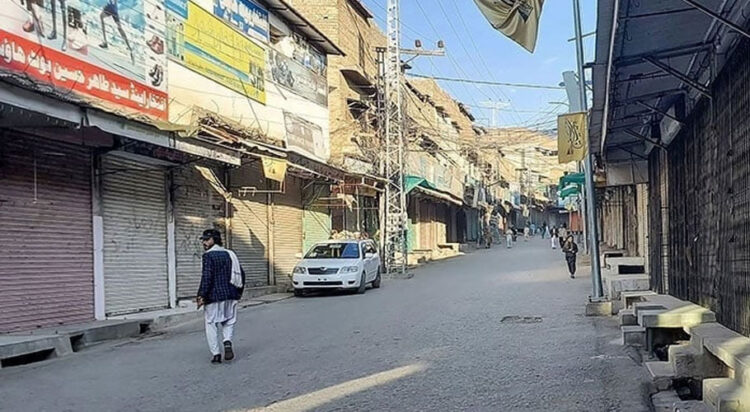A convoy of 75 trucks carrying essential supplies, including food, medicine, cooking gas, and other necessities, departed for Parachinar on Saturday. This move follows the truce agreement signed on January 1 between rival tribes in the region. Khyber Pakhtunkhwa government spokesperson Barrister Muhammad Ali Saif arrived in Kohat to oversee the convoy’s departure, alongside Commissioner Kohat, DIG Kohat, and other law enforcement officials.
The convoy’s mission is to address the critical shortage of essential goods in Kurram, a region severely affected by the ongoing blockade. “The people of Kurram have been facing a dire shortage of supplies due to the blockade,” Barrister Saif said, highlighting that this convoy is an immediate step toward alleviating their suffering.
The convoy includes a diverse range of goods: five trucks carrying medicine, nine with oil and ghee, five loaded with wheat and flour, seven with sugar, two transporting gas cylinders, 10 with vegetables, and 26 trucks carrying other utility items. Saif assured that the police and other security agencies are securing the region during the convoy’s movement.
However, the ongoing sit-in protest, demanding the full reopening of routes to Parachinar, has entered its 16th day. Despite severe weather conditions, protesters remain firm in their resolve. “We will continue to protest until the route is fully open,” said Tehsil council chairman Agha Muzammil Hussain. He added that around 4,100 overseas Pakistanis are still stranded due to the road closure, and emphasized that the protest is not tied to the recent decision regarding the convoy, but rather a call for the restoration of basic services.
A separate sit-in in Lower Kurram is calling for action against banned outfits and terrorist groups, while the ongoing humanitarian crisis in Parachinar has left many residents starving. The community is also struggling with inadequate resources for burials, lacking even basic funeral shrouds (kafan). Despite Prime Minister Shehbaz Sharif’s directive to allocate a helicopter for relief operations, the region continues to face immense hardship.
The blockade, which has persisted for over two months, has caused severe shortages, with residents being forced to ration food, and elders going without meals to ensure their children are fed.



































